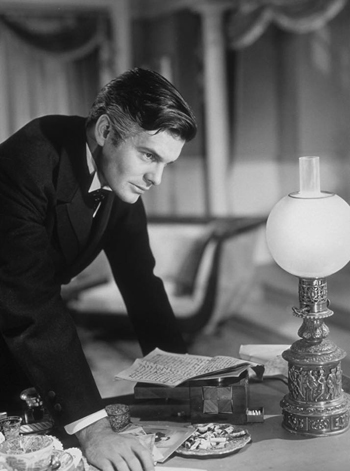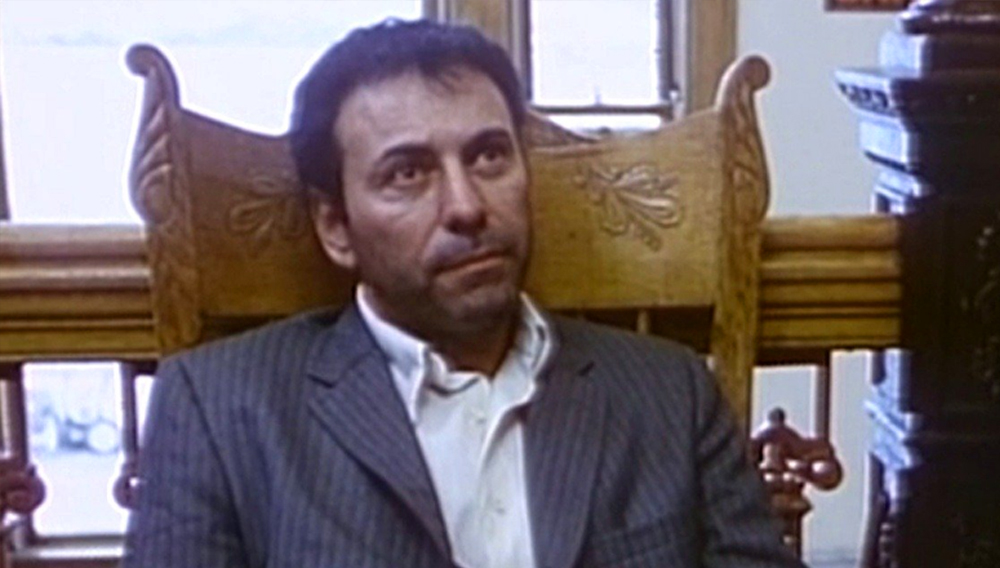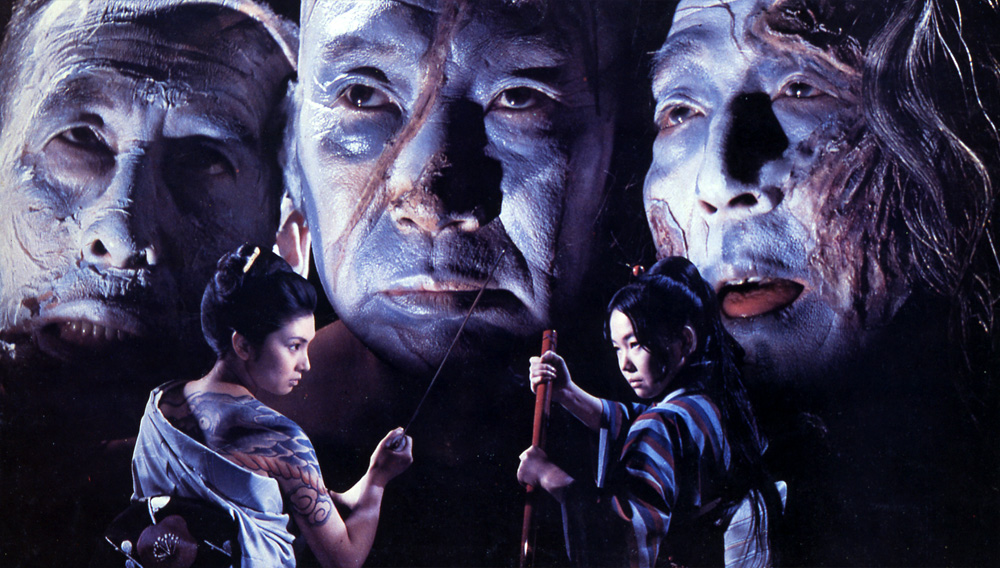Clever titles aside, death never takes a holiday. Not even during the Berlinale. Here, we remember several notable losses suffered over the past couple of weeks.
“Louis Jourdan, a handsome, sad-eyed French actor who worked steadily in films and on television in Europe and the United States for better than five decades, as a romantic hero in movies like Gigi and later as a suave villain in movies like Octopussy, died on Friday at his home in Beverly Hills,” reports Terrence Rafferty in the New York Times. Jourdan, who was 93, “was a reserved actor whose quiet manner lent his performances an aura of mystery and even of melancholy. His characteristic reticence served him well in both sympathetic and unsympathetic roles.”
“In 1946, Jourdan married Berthe Frédérique (known as Quique) and went to Los Angeles, having been persuaded by the movie mogul David O. Selznick that he would be able to make more of himself in Hollywood than he ever could in Paris,” writes Michael Freedland for the Guardian. “He shone in his first American film, The Paradine Case (1947), directed by Alfred Hitchcock and starring Gregory Peck. This was followed by Max Ophüls’s masterly Letter from an Unknown Woman (1948), based on the story by Stefan Zweig. Jourdan played the debonair, womanising pianist with whom Joan Fontaine falls hopelessly and tragically in love. He invested the performance with a vulnerability that saved his character from being simply caddish.”
More from Kimberly Lindbergs (Movie Morlocks), Keith Phipps (Dissolve) and Ignatiy Vishnevetsky (AV Club).
“Lizabeth Scott, a sultry blonde with a come-hither voice cut out for the seething romantic and homicidal passions of her Hollywood film noir roles in the late 1940s and early ’50s, died on Jan. 31,” reports Robert D. McFadden for the NYT. “Ms. Scott was billed as another Lauren Bacall or Veronica Lake, and in many of her 22 films she portrayed a good-bad girl with love in her head and larceny in her heart, or vice versa. Her co-stars were Humphrey Bogart, Kirk Douglas, Burt Lancaster and other tough gents, and her movies’ titles were lurid stuff: The Strange Love of Martha Ivers, Dead Reckoning, Pitfall, Dark City, I Walk Alone and Bad for Each Other.”
In the Los Angeles Times, David Colker looks back to a 1996 interview with documentary filmmaker Carole Langer in which Scott talks about what drew her to noir: “‘The films that I had seen growing up were always, boy meets girl, boy ends up marrying girl, they go off into the sunset,’ Scott said. After the war, films got more in touch with ‘the psychological, emotional things that people feel and people do. It was a new realm, and it was very exciting, because suddenly you were coming closer and closer to reality.'”
“Even when playing light comedy, Scott betrayed a close acquaintance with dolor,” writes Nick Pinkerton for Film Comment. Lizabeth Scott was 92.
Stewart Stern, “an Academy Award-nominated screenwriter who wrote Rebel Without a Cause [1955], Rachel, Rachel and other acclaimed films before forsaking Hollywood three decades ago,” has died at the age of 92, reports Margalit Fox for the NYT. Writing Rebel, “which was based on Irving Shulman’s adaptation of a story by [Nicholas] Ray, Mr. Stern looked to his own disaffected youth. As he explained afterward, he based [James] Dean’s character, Jim Stark, on his young self and modeled Jim’s parents—unnaturally detached and seemingly incapable of love—on his own.”
The Austin Chronicle‘s Marjorie Baumgarten points us to Charles Nafus‘s 2000 conversation with Stern about writing Rebel. And in the Stranger, Charles Mudede notes that Stern “was twice nominated for an Oscar (in 1952 for Teresa, and in 1968 for Rachel, Rachel), and won an Emmy for the teleplay of Sybil. (He also has a screenplay credit for one of cinema’s most bizarre films, Dennis Hopper‘s The Last Movie.)”
Mudede also talks with several Seattle filmmakers about their memories of Stern. “For many, myself included,” he writes, “the man’s life in Seattle was something of a mystery and even a bit magical. By all accounts, he left a glamorous life in Hollywood, and friendships with the likes of Paul Newman, for what pretty much amounted to the sticks—Seattle in the mid-1980s. Fellow Seattle transplant Tom Skerritt… explained to me over the phone that Stern moved here when he no longer found meaning in the Hollywood system. ‘You know, Hollywood gets great writers like William Faulkner to come and write screenplays, and they end up not writing their own scripts but writing what the studio wants. This is what happened to Stewart. He was one of the most sought-after screenwriters of his generation; he made his mark in the ’50s, ’60s, and ’70s. But by the ’80s, he had enough with the system, and he left. It was very abrupt.'”
Back to the New York Times, where Bruce Weber and Ashley Southall have taken on the unenviable task of reporting on the passing of one of their own, David Carr, “who wriggled away from the demon of drug addiction to become a journalistic celebrity, a name-brand media columnist at the New York Times and a best-selling author who reported on his own near demise and recovery.”
NYT film critic A.O. Scott writes of his friend that “he covered every corner of the media business (including, sometimes, his own employer) with analytical acumen, ethical rigor and gumshoe tenacity. He managed to see the complexities of digital-age journalism from every angle, and to write about it with unparalleled clarity and wit. His prose was a marvel of wry Midwestern plainness, sprinkled with phrases his colleagues will only ever think of as Carrisms.”
Bryant Crenshaw, best known for his appearance in Harmony Korine’s 1997 directorial debut Gummo, was struck by a car earlier this month and passed away at the age of 42. Korine for Indiewire: “He was a legend. He ran wild. He was only three feet tall, but he was a great basketball player. He had the same charisma as James Dean. He survived on beer and crackers. He would have lived 100 years if that car hadn’t run him down.”
“Robert Blees, a writer and producer for film and television who penned the screenplays for Douglas Sirk’s 1954 classic Magnificent Obsession and Joan Crawford film Autumn Leaves, died January 31,” reports Carmel Dagan for Variety. “He was 96.”
For news and tips throughout the day every day, follow @KeyframeDaily. Get Keyframe Daily in your inbox by signing in at fandor.com/daily.
















